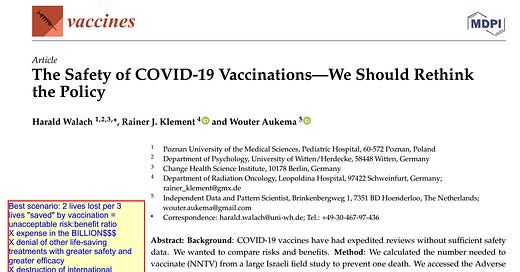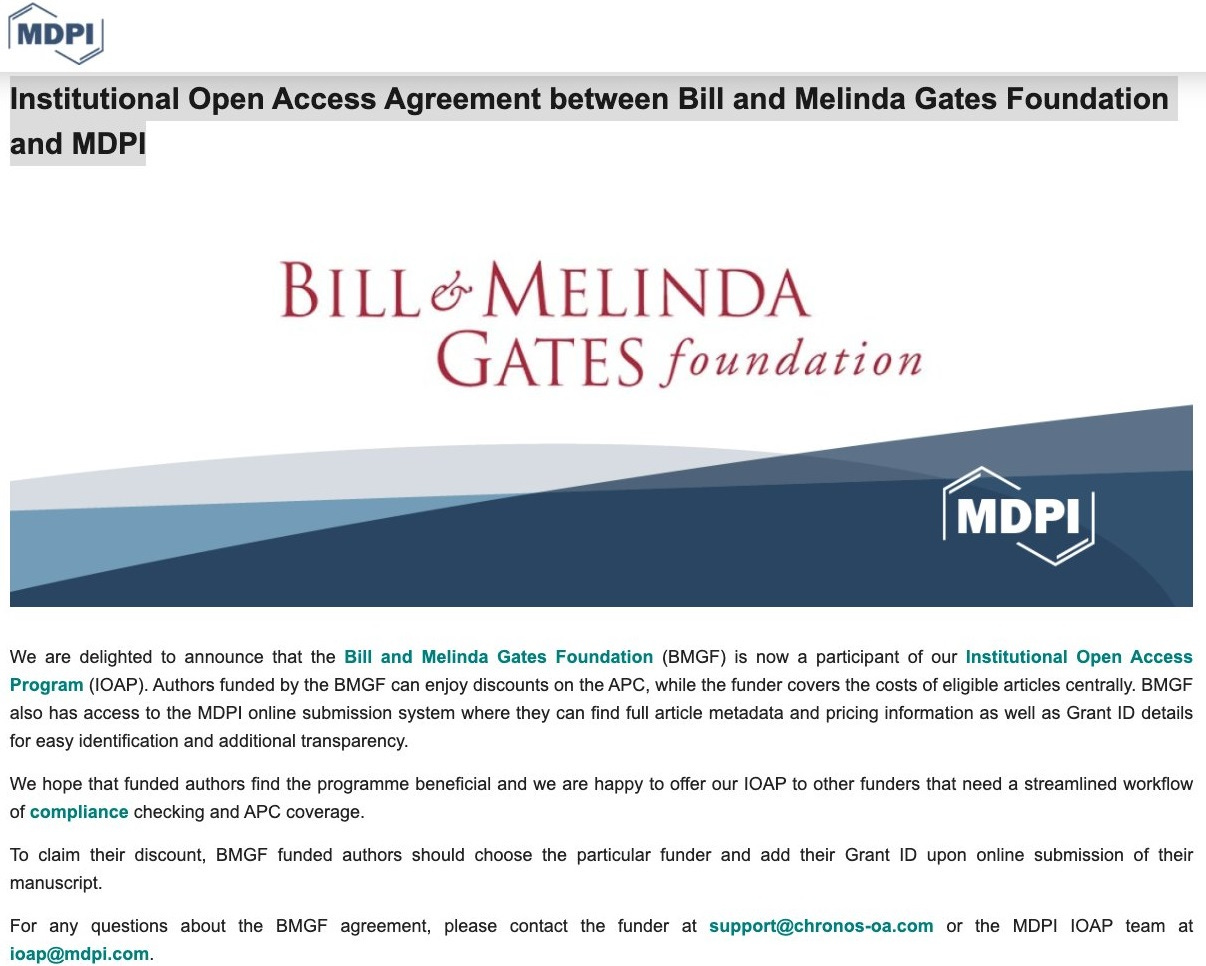NEW PEER-REVIEWED PUBLISHED RESEARCH Analyzing the Risk-Benefit Ratios of Cv19 Vaccinations 2021 June
Risks-benefits break even in terms of gross morbidity and mortality. Then add the consequences of lockdowns, suicides, obesity, addiction, depression, bankruptcies, delayed care, robbing public funds
Conversation piece: The Safety of COVID-19 Vaccinations—We Should Rethink the Policy. Vaccines 2021 June doi.org/10.3390/vaccines9070693
“Result: The NNTV is between 200–700 to prevent one case of COVID-19 for the mRNA vaccine marketed by Pfizer, while the NNTV to prevent one death is between 9000 and 50,000 (95% confidence interval), with 16,000 as a point estimate. The number of cases experiencing adverse reactions has been reported to be 700 per 100,000 vaccinations. Currently, we see 16 serious side effects per 100,000 vaccinations, and the number of fatal side effects is at 4.11/100,000 vaccinations. For three deaths prevented by vaccination we have to accept two inflicted by vaccination. Conclusions: This lack of clear benefit should cause governments to rethink their vaccination policy.”
“Finally, we note that from experience with reporting side effects from other drugs, only a small fraction of side effects is reported to adverse events databases. The median underreporting can be as high as 95%.”
“Conclusions: The present assessment raises the question whether it would be necessary to rethink policies and use COVID-19 vaccines more sparingly and with some discretion only in those that are willing to accept the risk because they feel more at risk from the true infection than the mock infection. Perhaps it might be necessary to dampen the enthusiasm by sober facts? In our view, the EMA and national authorities should instigate a safety review into the safety database of COVID-19 vaccines and governments should carefully consider their policies in light of these data. Ideally, independent scientists should carry out thorough case reviews of the very severe cases, so that there can be evidence-based recommendations on who is likely to benefit from a SARS-CoV2 vaccination and who is in danger of suffering from side effects. Currently, our estimates show that we have to accept four fatal and 16 serious side effects per 100,000 vaccinations in order to save the lives of 2–11 individuals per 100,000 vaccinations, placing risks and benefits on the same order of magnitude.”
This article was peer-reviewed, accepted for publication, posted online and fully published… and then retracted. Turns out that pro-vaccine billionaires fund the journal and almost certainly pressured the Editor to pull the article or they would pull their money. This is exactly what happened with publisher Elsevier many years ago when data was published showing harm from the pesticide glyphosate.
See also: thehastingscenter.org/rounding-up-scientific-journals excerpted below:
Rounding Up Scientific Journals
by Adriane Fugh-Berman and Thomas G. Sherman, PhD
Published On: January 10, 2014
“Scientific journal publishing reached a low point in November, when the journal Food and Chemical Toxicology retracted a study by Gilles-Eric Séralini and colleagues at Caen University in France. The study, published in November 2012, assessed the effect of feeding rats corn genetically modified to withstand treatment with Monsanto’s herbicide Roundup for two years (that is a lifetime in rat years). Small amounts of Roundup were added to the diet of one group of rats. … According to SpinWatch, a European muckraking organization, 11 of the authors of letters to the editor slamming Séralini’s study had undisclosed financial relationships with Monsanto. In 2013, Paul Christou, the editor of Transgenic Research, coauthored an attack on Séralini and the FCT editors in his own journal, calling for a retraction of the study. Christou did not disclose his multiple conflicts of interest, including being an inventor on patents on GM crop technology, many of which Monsanto owns. Meanwhile, back at Food and Chemical Toxicology, a new position for an associate editor was filled by Richard E. Goodman, a University of Nebraska professor who previously worked for Monsanto, and who has a longstanding association with the industry-funded International Life Sciences Institute (ILSI). Months later, Elsevier, FCT’s publisher, announced the retraction.”





